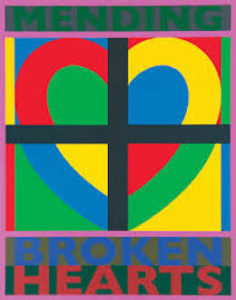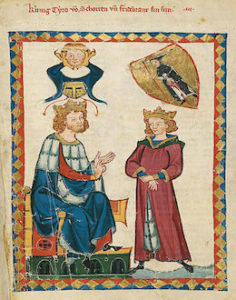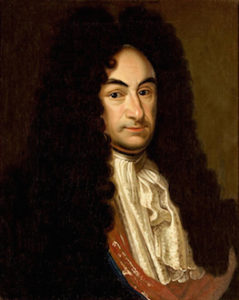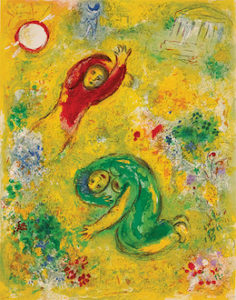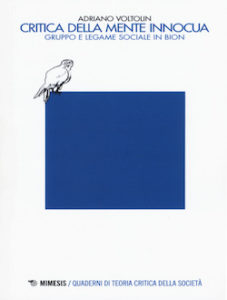Pagine
Condividi e segnala
Tag
- Althusser
- Antropologia
- Baumgarten
- Bourdieu
- Conceivability of Nothingness
- Conciliation
- corpo
- Derrida
- Dialectics
- Difference
- distinzione
- Europe
- Expression
- giudizio
- Grace
- Habitus
- Heidegger
- Hobbes
- Kant
- linguaggio
- Lyotard
- marxismo
- Medieval Aristotelianism
- Metaphysics
- Nature
- Negative
- Nichts
- nihil
- Nihilism
- nihil negativum
- nihil privativum
- Non-identical
- Nothing
- Nothingness
- onore
- politica
- postmoderno
- pratica
- riconoscimento
- Smith
- solitudine
- Sovranità
- Spinoza
- Thomas Aquinas
- Western Ontology
-
Articoli recenti
Link
Archivi categoria: NUMERO 3
Consecutio rerum 3, anno II (1/2017-2018)
Download Full Issue
Download Table of Contents
Amicizie
Itinerari storici e attualità politica
(a cura di Luca Cianca e Marta Libertà De Bastiani)
Pubblicato in Copertina, NUMERO 3
Lascia un commento
Indice
Editoriale
Luca Cianca e Marta Libertà De Bastiani: L’amicizia come relazione affettiva e politica
Monografica
Roberto Finelli: L’amicizia hegeliana come «lasciar essere»: dalla negazione astratta dell’alterità al riconoscimento di sé
C.D.C. Reeve: Algamata, Deontology, and the Erotics of Emptiness in the Symposium
Arnaud Macé: Platon. L’amitié civique et les deux formes du communisme
Diego Zucca: Le tre amicizie di Aristotele
Aldo Brancacci: Amicizia e filosofia in Epicuro
Bénédicte Sère: L’amitié dans la pensée du millénaire médiéval: tableaux d’une exposition
Annalisa Ceron: L’amicizia nel Principe
… Continua a leggere
Pubblicato in Indice
Lascia un commento
L’amicizia come relazione affettiva e politica
Luca Cianca
Istituto Italiano per gli Studi Filosofici, Napoli
luca.cianca@yahoo.it
Marta Libertà De Bastiani
Università Roma Tre / ENS Lyon
martalibertadebastiani@gmail.com
1.
Quello che la storia del pensiero ha riservato all’amicizia è un concetto composito e stratificato, il quale, pur non comparendo nel novero delle sue categorie preminenti, non ha tuttavia cessato, nel corso del tempo, di suscitare l’interesse della riflessione filosofica. “Categoria” dal profilo ancipite, situata al confine di filosofia pratica e filosofia teoretica, tra individuo e società, passioni e ragione, l’amicizia si contraddistingue per una estesa pluralità di significati … Continua a leggere
Pubblicato in Editoriale, NUMERO 3
Lascia un commento
L’amicizia hegeliana come «lasciar essere»: dalla negazione astratta dell’alterità al riconoscimento di sé
Roberto Finelli
Università Roma Tre
roberto.finelli@uniromatre.it
Abstract: Negation can be conceived of as the “metacategory” of Hegelian philosophy. An inquiry into its manifold and polysemous functions is essential to try to elucidate and to loose the complexities of Hegel’s dialectic. In the first part, this paper aims at showing how, through the three sections oft the Science of Logic the meaning and the function of Negation change in connection with the changing role of Otherness. The Author also argues that the Doctrine of the Concept displays structures and categories that are endowed with an ethical … Continua a leggere
Pubblicato in Monografica, NUMERO 3
Lascia un commento
Agalmata, Deontology, and the Erotics of Emptiness in the Symposium
C.D.C. Reeve
University of North Carolina at Chapel Hill
cdcreeve@email.unc.edu
Abstract: An integrated interpretation of (1) the Alcibiades episode in Plato’s Symposium that bases its skepticism about his reliability as a narrator on the evidence provided by the text itself, especially its use of the terms agalmata, exaiphnês, and epi dexia; (2) Socrates’ claim that he an expert on ta erôtika; and (3) Diotima’s account of the ergon of love as tokos en kalô[i], that uncovers some concealed deontological elements in Platonic ethics.
Keywords: Alcibiades, Socrates, eros, agalmata, … Continua a leggere
Pubblicato in Monografica, NUMERO 3
Lascia un commento
Platon. L’amitié civique et les deux formes du communisme
Arnaud Macé
Université de Bourgogne Franche-Comté
amace@univ-fcomte.fr
Abstract: Plato describes the constitution of the Republic as faithful to the saying according to which « among friends, everything is common » and he also calls friends the citizens of the Laws. The present paper suggests that the nature of the community implied in the idea of political friendship in Plato is manifold and that it should be understood in the light of the two forms of the common known in Archaic and Classical greek thought: the exclusive common, i.e. a common ressource to be set … Continua a leggere
Pubblicato in Monografica, NUMERO 3
Lascia un commento
Le tre amicizie di Aristotele
Diego Zucca
Università di Sassari
dizucca@uniss.it
Abstract: In this paper I present and discuss the Aristotelian theory of friendship. I mainly focus on the philosophical core of the theory, especially on the idea that there are three types of friendship (one based on the good, one based on the useful, one based on the pleasant). In presenting and discussing the theory: a) I concentrate on Aristotle’s method of inquiry, namely, on his attempt to do justice of phainomena (such as common behaviours, shared and notable opinions, ordinary intuitions, linguistic ascriptive practices) through a rational … Continua a leggere
Pubblicato in Monografica, NUMERO 3
Lascia un commento
Amicizia e filosofia in Epicuro
Aldo Brancacci
Università di Roma Tor Vergata
aldobrancacci@yahoo.it
Abstract: According to Epicurus, natural and necessary pleasures – the only ones that Epicurus admits – are those that look to happiness (eudaimonia), physical well-being (aokhlesia), and life itself. The desire for philosophy is the natural and necessary desire which looks to happiness. Philosophy, insofar as it frees us from ambitions, from the desire for power, for wealth, for fame, changes human beings and creates a “new man”, so to speak. This great transformation makes it possibile to establish this entirely different kind … Continua a leggere
Pubblicato in Monografica, NUMERO 3
Lascia un commento
L’amitié dans la pensée du millénaire médiéval: tableaux d’une exposition
Bénédicte Sère
Université de Paris Nanterre
benedicte.sere@sfr.fr
Abstract: Friendship – as represented by emotions and affects – is the essential relationship on which mediaeval society is based, and the concept of friendship is ubiquitous in Medieval Thought. During the Middle Ages – which lasted for a thousand years – friendship always played a fundamental role in shaping social and political relations. This is the reason why medieval philosophers as well as princes and politicians – men of science as well as men of power – all showed a genuine interest in describing friendship’s features. A … Continua a leggere
Pubblicato in Monografica, NUMERO 3
Lascia un commento
L’amicizia nel Principe
Annalisa Ceron
Università degli studi di Milano (Dipartimento di Filosofia)
annalisa.ceron@unimi.it
Abstract: This article sheds light on Machiavelli’s view of friendship as a political relationship. As the comparison between Platina’s De Principe and Machiavelli’s The Prince makes clear, the political anthropology, the political ontology and the vision of the world on which Machiavelli realistic idea of politics hinges imply that neither the relationship between a prince and his subjects nor that between the prince and his chosen advisers can be conceived as a form of friendship. What is at stake is not only a new … Continua a leggere
Pubblicato in Monografica, NUMERO 3
Lascia un commento
L’amicizia in Montaigne: autonomia, mescolamento, confraternita
Raffaele Carbone
Università di Napoli Federico II
raffaele.carbone@unina.it
Abstract: In this article, I put forward a particular reading of the chapter “De l’amitié” from Montaigne’s Essais, which also draws upon other chapters with which it can be compared. Having dealt with the well-known question of the relationship between Montaigne and La Boétie, I go on to highlight those aspects which characterize the Montaignian model of perfect friendship compared with the paradigms of the ancient world, particularly that of Aristotle. I draw particular attention to the features of autonomy (as opposed to “heteronomous” friendships, the purpose … Continua a leggere
Pubblicato in Monografica, NUMERO 3
Lascia un commento
Spinoza: amicizia e concordia. Corrispondenze senecane e specificità politiche
Marta Libertà De Bastiani
Università Roma Tre / ENS Lyon
martalibertadebastiani@gmail.com
Abstract: This paper examines the multi-faceted nature of friendship, conceived by Spinoza as a linking concept between reason and passions, as well as a linking concept between individual behavior and politics. If friendship indicates a certain form of agreement between human beings, its precise features and outcomes vary to a large extent. In fact, friendship may be a rational and natural agreement which takes place between people who live according to reason and which resembles Seneca’s conception of true friendship, … Continua a leggere
Pubblicato in Monografica, NUMERO 3
Lascia un commento
Leibniz: note sull’amicizia
Mariannina Failla
Università Roma Tre
mariannina.failla@uniroma3.it
Abstract: The article aims to describe the several meanings of friendship by Leibniz; starting from the convinction that the person is the root of friendship, Leibniz distinguishes between person and “brutus” while laying the foundations for an interesting philosophy of mind. Cognition (vision of universal), will and memory continuously interact in that frame. Friendship also leads to a specific political vision of civil society, based on relations of reciprocity (legal category of equity). The legal meaning and moral aspects of friendship emerge from the analysis of the three types … Continua a leggere
Pubblicato in Monografica, NUMERO 3
Lascia un commento
L’amitié selon Rousseau, de l’expérience douloureuse au projet politique
Géraldine Lepan
Université Toulouse Jean Jaurès / IHRIM (Cerphi)
geraldine.lepan@orange.fr
Abstract: This article aims at shedding light on Rousseau’s twofold conception of friendship, as a singular and «true» relation on the one hand, and as civic friendship on the other hand. As regards the first point, the paper analyzes Rousseau’s frequent comparison between love and friendship, as well as the preeminence he assigns tot he latter. often compares love with friendship and gives prominence in this last. Friendship is a product of our natural impulses. The ideal represented by friendship also allows to measure truth … Continua a leggere
Pubblicato in Monografica, NUMERO 3
Lascia un commento
Hegel e l’amicizia: presenza/assenza di un concetto
Sabina Tortorella
Université Paris II – Panthéon Assas
sabina.tortorella@gmail.com
Abstract: The article starts by noticing that the topic of friendship is never directly discussed in the main Hegelian works and aims at identifying the reasons for the lack of consideration for this topic. Claiming that Hegel cannot be conceived as a philosopher of friendship necessarily involves asking ourselves about the very meaning of this notion, through a previous survey of the ways in which it was depicted by Hegel’s contemporaries. Within an interpretation that opposes the modern concept of friendship to Aristotelian philia, the essay … Continua a leggere
Pubblicato in Monografica, NUMERO 3
Lascia un commento
Sulla recezione italiana della teoria critica di Rahel Jaeggi
Marco Solinas
Scuola Superiore Sant’Anna Pisa
marco.solinas@santannapisa.it
Abstract: The paper aims at introducing some fundamental features of the Italian reception of Rahel Jaeggi’s Critical Theory, moving from the present discussion of the collection of essays entitled Forme di vita e capitalismo edited by M. Solinas. The attention is focused in particular on Jaeggi’s peculiar actualization of the Left Hegelianism tradition on two main fields: 1) the critique of capitalism as a form of life; 2) the priority given to ethical life (Sittlichkeit) and the related adoption of the method of immanent critique.
Keywords: … Continua a leggere
Rahel Jaeggi: La Sozialphilosophie come programma di ricerca
Sergio Caruso
Università degli studi di Firenze (Dipartimento di Scienze Politico e Sociali)
sergio.caruso@unifi.it
Abstract: A number of issues in Rahel Jaeggi’s thought are here reviewed and discussed: most of them with much appreciation, some critically. Highly appreciable are: her attempt to clearly redefine a key-concept borrowed from Habermas such as «form of life», and to re-build social criticism upon it; a creative relationship to Hegel, entailing (a) the partial recuperation of «dialectical contradictions» as contradictions between norms, (b) a partial recuperation of Hegel’s Objektiver Geist redefined in terms of collective intelligence engaged in problem … Continua a leggere
I problemi irrisolti della negazione determinata. Rahel Jaeggi fra contestualità e trascendenza
Lucio Cortella
Università Ca’ Foscari – Venezia
cortella@unive.it
Abstract: The paper aims to provide an analysis of Rahel Jaeggi’s theory from the standpoint of the Hegelian-turn in the most recent developments of critical theory. It analyzes the transition from Jürgen Habermas’ Kantian normativism to the Hegelianism of Axel Honneth and Rahel Jaeggi. It also deals with a narrower question, concerning Jaeggi’s account of “immanent critique” and the relevance to it of Hegel’s “determinate negation”.
Keywords: critical theory; determinate negation; dialectics; ethical life; forms of life
Il proposito esplicito che attraversa … Continua a leggere
A proposito di Rahel Jaeggi
Rino Genovese
Scuola Normale Superiore, Pisa
Presidente della Fondazione per la critica sociale, Roma
rinogeno@gmail.com
Abstract: The paper aims to give a critical account of Jaeggi’s new Hegelian theory, in particular from the point of view of Adorno’s heritage of the criticism of forms of life.
Keywords: Theodor Adorno, critical theory, Hegel, ethos, forms of life
Non certo per puro mecenatismo la Fondazione per la critica sociale ha promosso la pubblicazione della raccolta di saggi di Rahel Jaeggi, ben curati da Marco Solinas sotto il titolo Forme di vita e … Continua a leggere
Perché dovremmo vivere altrimenti? Alcune ragioni etico-pragmatiche per desiderare un’altra vita
Leonard Mazzone
Università degli Studi di Firenze
leonard.mazzone@unifi.it
Abstract: The essays collected in Rahel Jaeggi Forme di vita e capitalismo, ed. by M. Solinas, represent an exemplar exception to what I would be tempted to call the “division of theoretical labour” within the social sciences. After the economic crisis of 2007, many disciplinary fields – including political philosophy – have focused their attention on the topic of critique; however, this renewed interest towards this issue has not been combined with a similar, deep consideration of the social order that produced that crisis. At the same … Continua a leggere
La critica immanente delle forme di vita: una teleologia emancipatoria anti-essenzialista
Eleonora Cugini
Università degli Studi di Padova
eleonora.cugini@studenti.unipd.it
Abstract: This paper focuses on the relation between Rahel Jaeggi’s theory of the Forms of Life and Hegel’s notion of Ethical Life, as it appears in Hegel’s Philosophy of Right. The paper begins by highlighting the scission between right and good, which is typical of liberal approaches to the moral right and excludes the ethical good from the philosophical debate. I emphasize how such distinction leads to a neutral attitude towards the good, which is seen as something pertaining only to individual choices. Starting … Continua a leggere
Domenico Losurdo, “Il Marxismo occidentale. Come nacque, come morì, come può rinascere” (Laterza, Bari-Roma 2017)
Oscar Oddi
Recensione de “Il Marxismo occidentale. Come nacque, come morì, come può rinascere” di D. Losurdo (Laterza, Bari-Roma 2017).
Tra i molti aspetti che caratterizzano lo scacco storico in cui si trova oggi il pensiero e la prassi di emancipazione degli oppressi, a cominciare da quello di ispirazione marxista, spicca, come sua manifestazione da un lato, e causa dall’altro, l’abbandono di ogni analisi e riflessione, e dunque delle sedi ad esse preposte, sui fondamenti del corpus teorico-strategico che ha sostenuto il processo di liberazione di milioni di uomini e donne nel corso almeno degli ultimi … Continua a leggere
Pubblicato in CT 3, Recensioni
Lascia un commento
A. Voltolin “Critica della mente innocua: gruppo e legame sociale in Bion”, Quaderni di teoria critica della società, vol.3, Mimesis 2017
Emanuele Tarasconi
Università degli studi di Milano-Bicocca
e.tarasconi@campus.unimib.it
Recensione di “Critica della mente innocua: gruppo e legame sociale in Bion” di A. Voltolin (Quaderni di Teoria Critica della Società, Vol.3, Mimesis, Milano 2017)
1. La psicologia individuale e la psicologia collettiva
«La sociologia, che tratta del comportamento umano nella società, non può essere altro che psicologia applicata. A rigor di termini vi sono solo due scienze: la psicologia, pura o applicata, e la scienza naturale». Questa è la tesi avanzata nel testo di Sigmund Freud Introduzione alla psicoanalisi (1917). … Continua a leggere
Pubblicato in NUMERO 3, Recensioni
Lascia un commento



